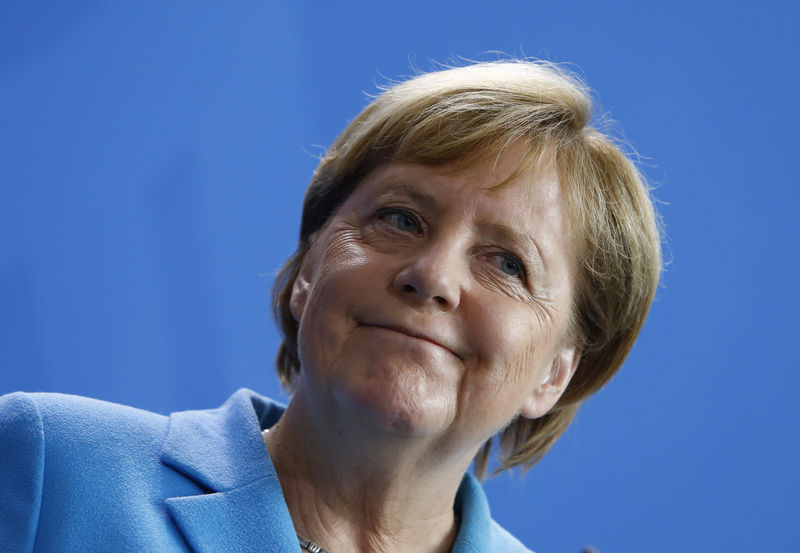By Madeline Chambers
BERLIN (Reuters) - German Chancellor Angela Merkel's government said on Wednesday it is preparing for all Brexit scenarios, including a no-deal, after its cabinet approved a draft law on a transition phase for Britain after it leaves the European Union next year.
A German government spokeswoman made clear that the draft law on a transition phase, the result of an EU agreement from March, would only come into force if an exit deal was reached.
"If we do not get to an agreement - a scenario we don't want - there will not be a transition phase," said spokeswoman Ulrike Demmer. "To be equipped for all events, preparations for the case of a no-deal must also take place," she said.
Merkel said on Wednesday the EU needed to negotiate with Britain to ensure continued good relations.
Bloomberg reported earlier on Wednesday that the German and British governments had abandoned key Brexit demands, potentially easing the path for a divorce deal.
Asked to comment on the report, a government spokesman, who declined to be named, said Germany had full trust in the European Union's chief Brexit negotiator, who represents the bloc's 27 members in talks with Britain.
"The government's position is unchanged," the spokesman said. "The federal government has full trust in the leadership of Michel Barnier."
Germany has said individual EU member states should not negotiate separately with Britain as this would weaken the bloc's negotiating position.
The issue of the Irish border has yet to be resolved and British Prime Minister Theresa May's Conservative Party is deeply split on her negotiating strategy.
A German newspaper reported on Tuesday that Germany's preparations for Brexit included the hiring of new customs staff and that all possible outcomes were being considered.
Under the deal reached by Britain and the EU in March, Britain would effectively remain a non-voting EU member for 21 months until the end of 2020.
Demmer said the transition phase should give institutions and companies time to adjust to the reality of ending over four decades of integration with the world's largest trading bloc.
In mounting signs of concern in Berlin about progress of the talks, Merkel said late on Tuesday that Germany was doing all it could to ensure the EU and Britain reach a divorce deal, but warned that success was not guaranteed.
Earlier Merkel's CSU Bavarian allies said they wanted to have a close relationship with Britain after its departure.

"The United Kingdom remains a close economic partner and ally. We decisively reject a hard Brexit," the Christian Social Union (CSU) said in a draft document seen by Reuters that the party is due to agree on Thursday.
(Additional by Andreas Rinke; Editing by Michelle Martin and Janet Lawrence)